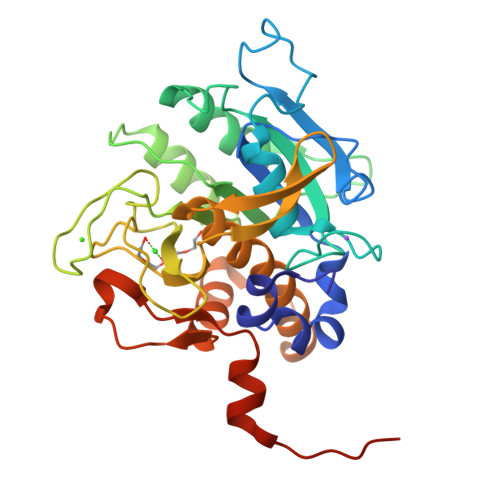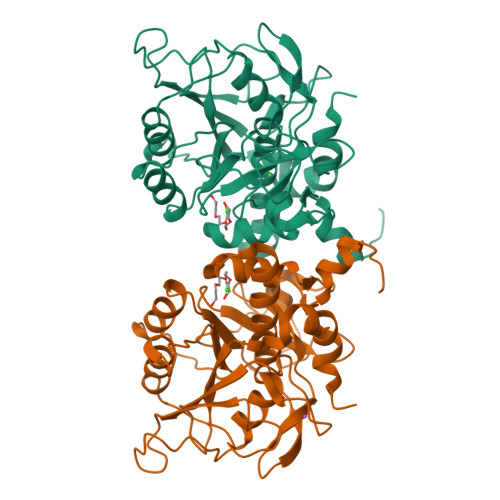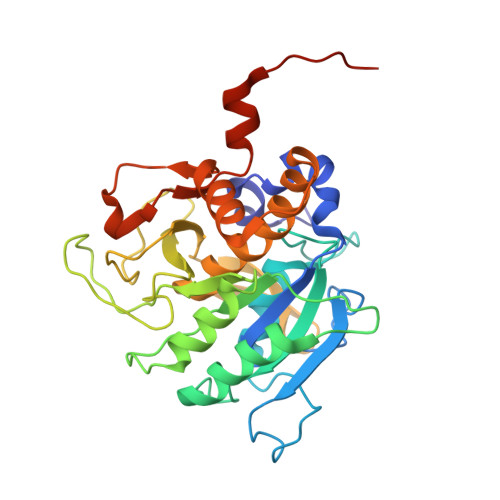Regulation of an Intracellular Subtilisin Protease Activity by a Short Propeptide Sequence Through an Original Combined Dual Mechanism.
Gamble, M., Kunze, G., Dodson, E.J., Wilson, K.S., Jones, D.D.(2011) Proc Natl Acad Sci U S A 108: 3536
- PubMed: 21307308
- DOI: https://doi.org/10.1073/pnas.1014229108
- Primary Citation of Related Structures:
2XRM - PubMed Abstract:
A distinct class of the biologically important subtilisin family of serine proteases functions exclusively within the cell and forms a major component of the bacilli degradome. However, the mode and mechanism of posttranslational regulation of intracellular protease activity are unknown. Here we describe the role played by a short N-terminal extension prosequence novel amongst the subtilisins that regulates intracellular subtilisin protease (ISP) activity through two distinct modes: active site blocking and catalytic triad rearrangement. The full-length proenzyme (proISP) is inactive until specific proteolytic processing removes the first 18 amino acids that comprise the N-terminal extension, with processing appearing to be performed by ISP itself. A synthetic peptide corresponding to the N-terminal extension behaves as a mixed noncompetitive inhibitor of active ISP with a K(i) of 1 μM. The structure of the processed form has been determined at 2.6 Å resolution and compared with that of the full-length protein, in which the N-terminal extension binds back over the active site. Unique to ISP, a conserved proline introduces a backbone kink that shifts the scissile bond beyond reach of the catalytic serine and in addition the catalytic triad is disrupted. In the processed form, access to the active site is unblocked by removal of the N-terminal extension and the catalytic triad rearranges to a functional conformation. These studies provide a new molecular insight concerning the mechanisms by which subtilisins and protease activity as a whole, especially within the confines of a cell, can be regulated.
Organizational Affiliation:
School of Biosciences, Cardiff University, Cardiff CF10 3AT, United Kingdom.






















